Passwords at Home -- What a Family Movie Can Teach Us About Passwords
Published:We have to talk some more about passwords. Most people have more online accounts than their password manager can remember, which is bad enough. Surely, using the same password everywhere would be catastrophic.
Still, most people maintain terrible password policies. Infosec celebrities are working hard on improving the situation by educating those users, who take the first step, but it's a far cry from being effective for the average netizen.
So we have to educate the population about passwords and privacy in more effective ways. Like making a blockbuster family animation movie.
In Home, colour-changing, octopus-like blobs with high-tech gadgets, the Boov, take over Earth. Kids will hear about the friendship of Oh, a clumsy Boov (Jim Parsons), and Tip, a human girl (Rihanna).
Parents, on the other hand, will be told about passwords, privacy, and, to some extent, reflections on the going-dark debate, too (whether intentional or not). With gadgets, come passwords, and with an alien race, comes a new socio-political system. However stupid this all sounds in an animated family comedy.
Not my fault
The movie hits up with Oh screwing up. He wants to send an email to his friend, but ends up sending it to the whole Universe, and along with it, the Boov's arch enemy, the Gorg.
Have you ever hit "Reply All" instead of "Reply"? I certainly have. My screw-ups haven't ended as badly as inviting a Death Star-like killing machine for a good ole genocide, but let's just say I've got into the habit of double-checking early on in my career.
Oh is very quick and right about pinpointing whose fault it is.
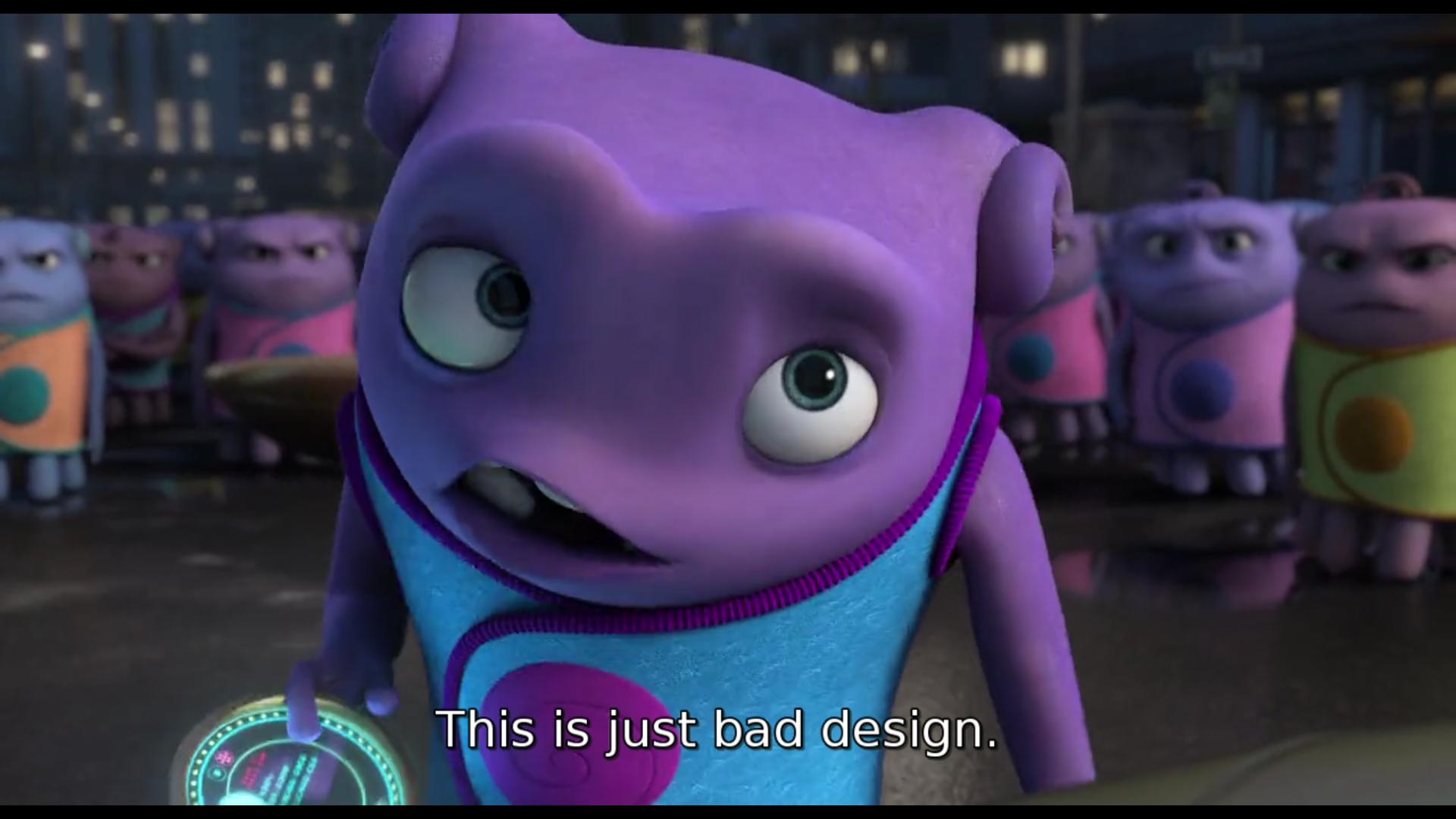
Everyone and their dogs have written about the problems with the fundamental usability problems of email, PGP, XMPP, and you probably also have your own reasons why Thunderbird, Gmail WhatsApp, and the rest, suck. We have already realised that UI, where catastrophic failure and sending a party invite are literally a few millimeters away, is not user-friendly, but many desktop apps are still in the stone age. How did anyone ever think the menubar is a good idea?
I will be a hero Boov for getting your password!
Home doesn't fail to pitch in on the topic of handing our private keys to our rulers, either. There's 40 hours (because light speed, I assume) to stop the message from reaching the Gorg. This involves going to Oh's mail account, and cancel the message (This will stop the catastrophy, although I can't Boov science enough to explain how this works).
But Oh's email account is password protected!
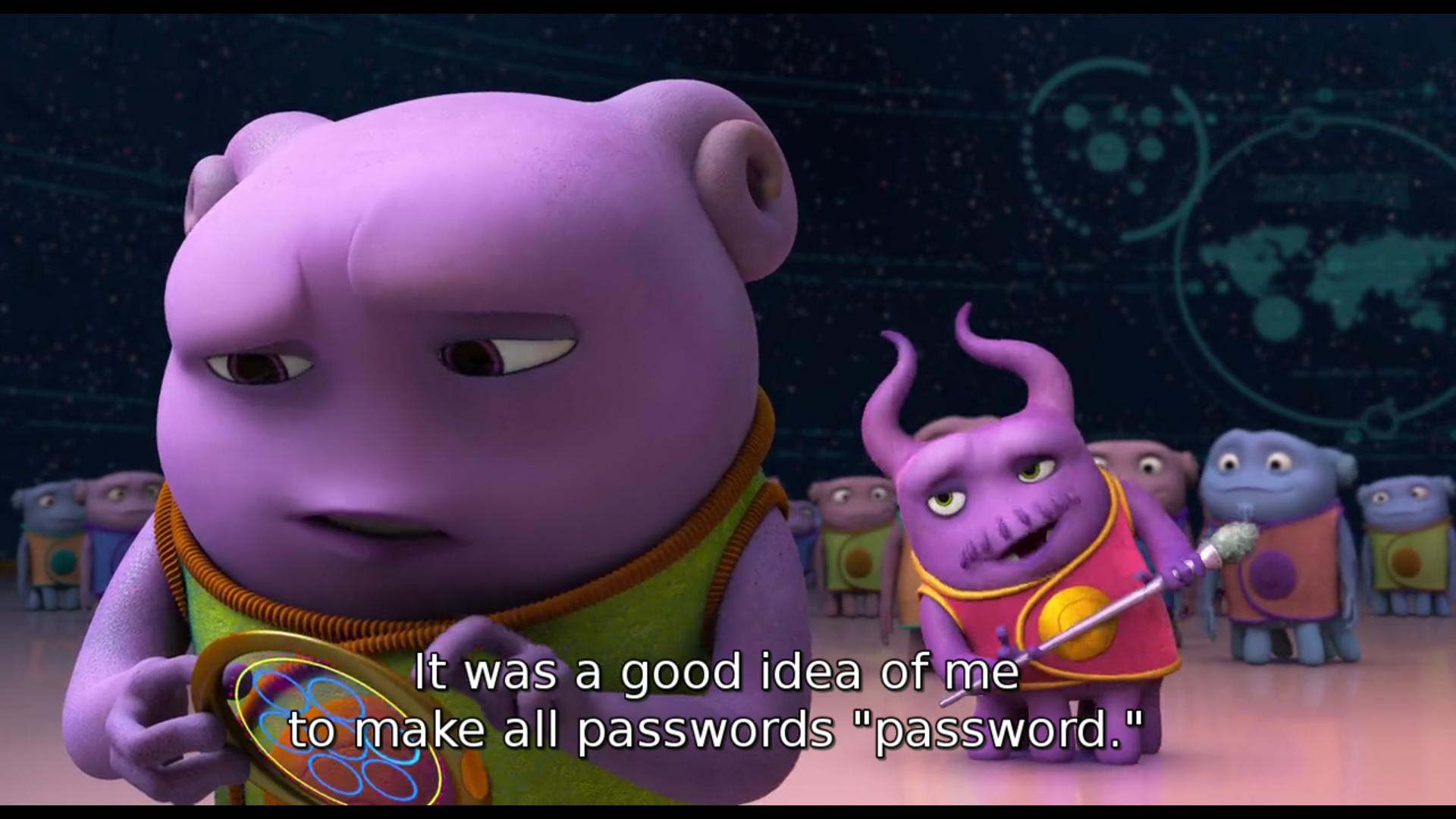
So the Boov, apparently under instruction of their Great Leader, set everyone's email password to "password". Only there's a problem.
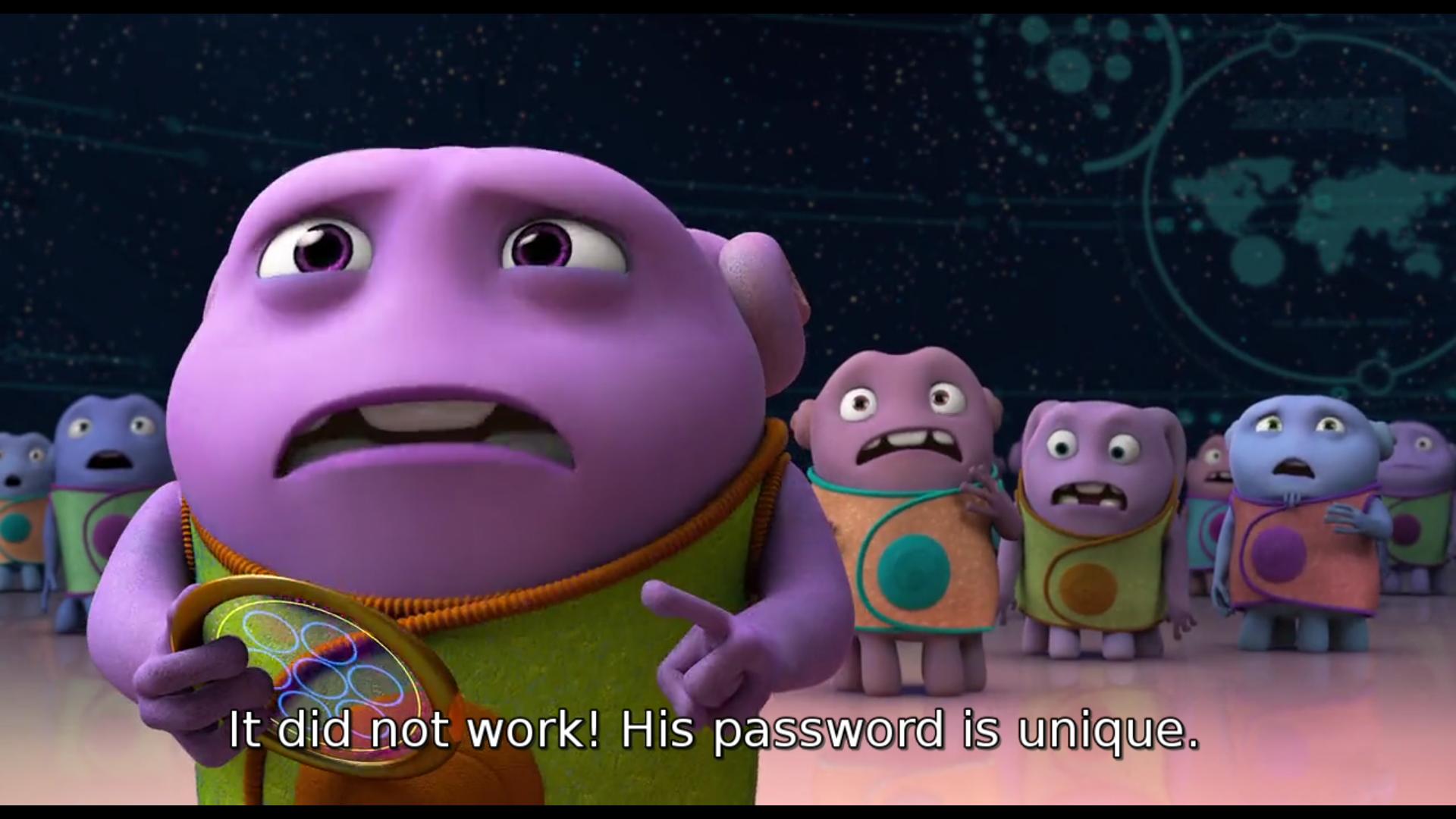
If we outlaw passwords, only outlaws will have passwords. Sounds familiar? Oh set his own password because he never got the memo that he shouldn't. He never wanted to be a criminal. But here we are.
Any suggestions how to recover a unique password?
Brute Force!
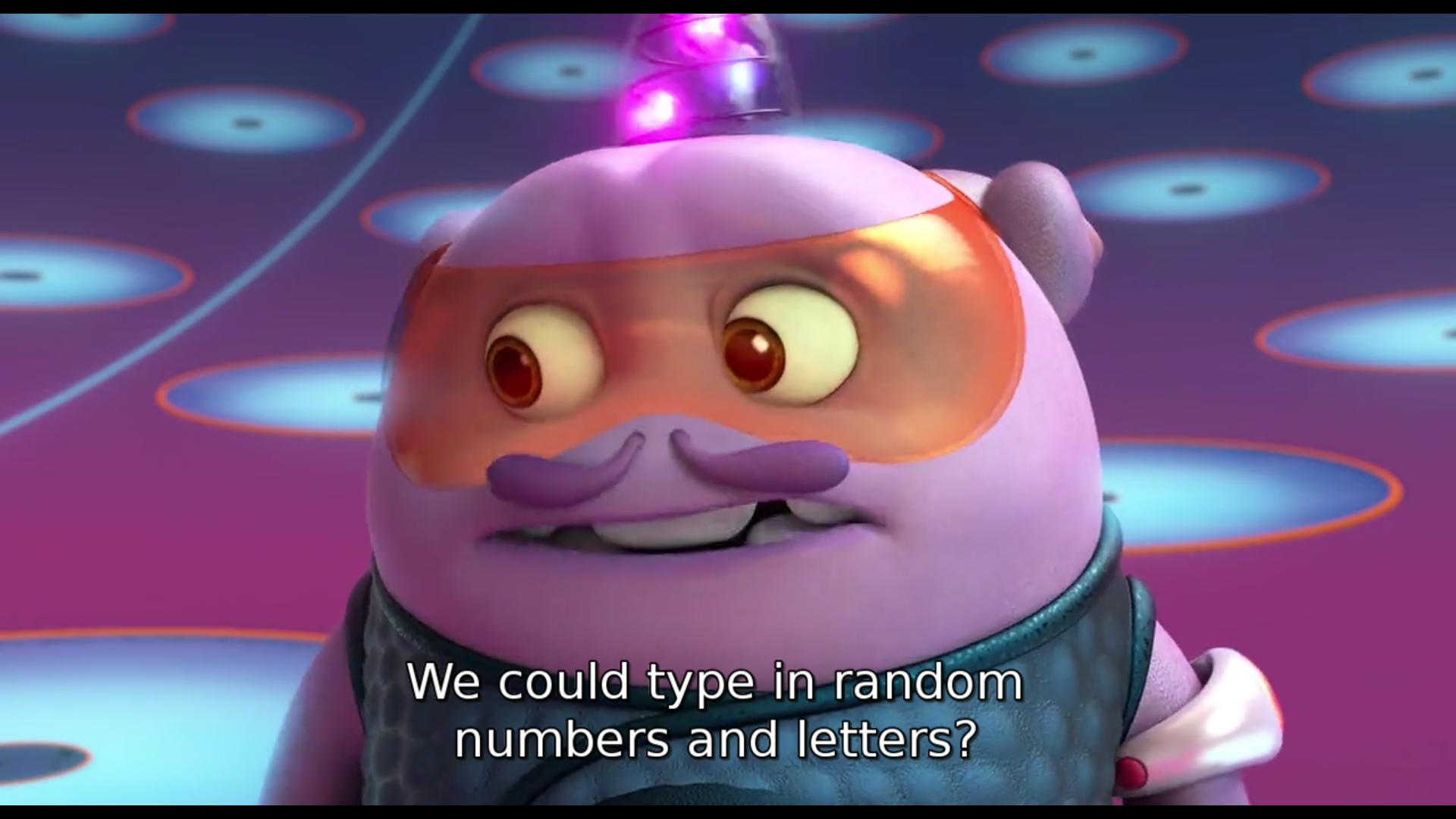
I can't believe my eyes, as the Boov proceed to ramp up a brute-force operation, with thousands of Boov connecting to a Ghost in the Shell-like cyberspace, and cracking Oh's password. In a blockbuster family movie, not a cyberpunk dystopia.
Oh's password is going to be hard to crack using brute force, though.
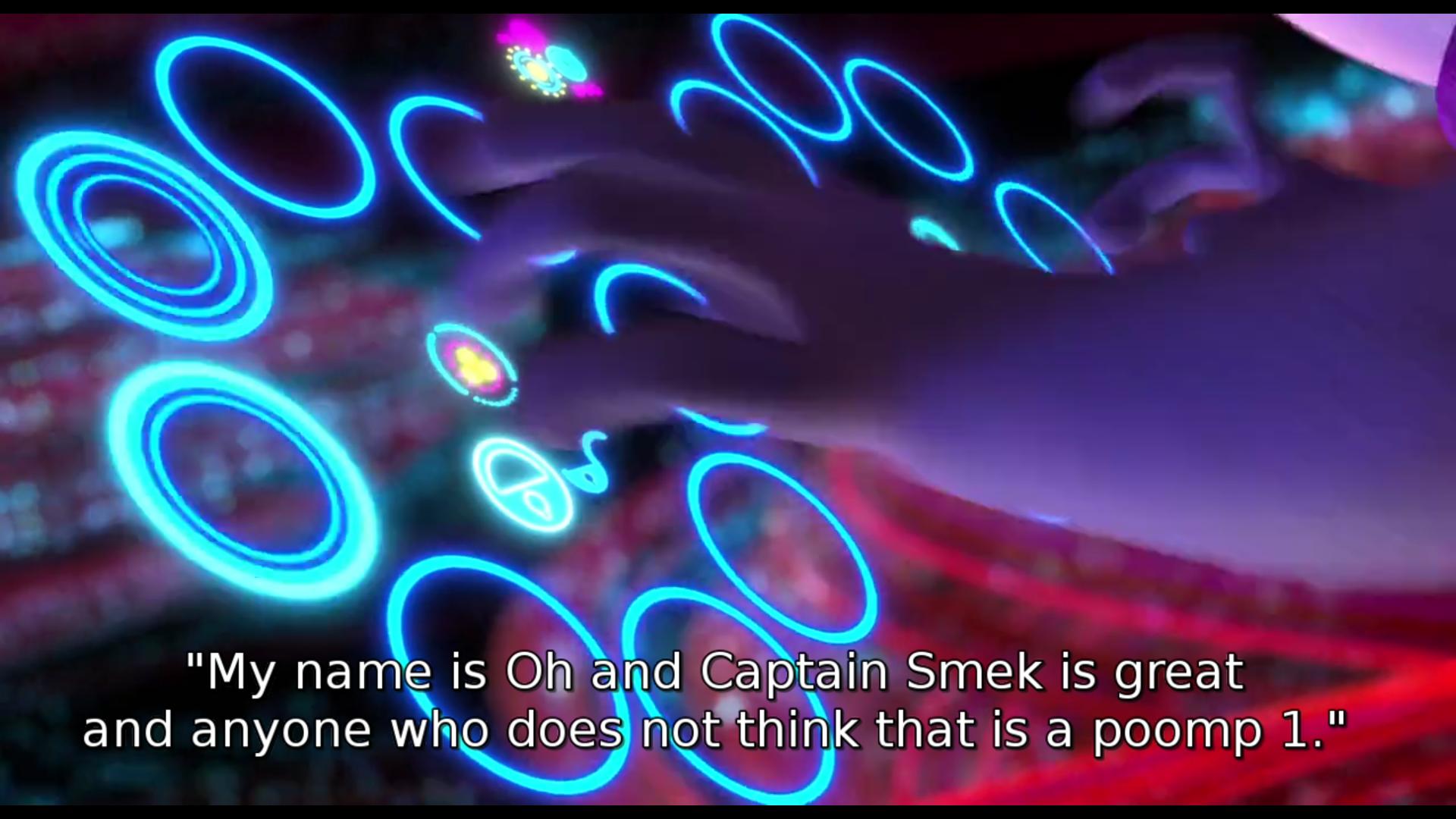
Oh's passphrase has everything you need: letters, numbers, capitals, multiple words, and it's as long as any self-respecting paranoid would use. That's 88 characters!
Oh enters his passphrase, the message is cancelled and doesn't reach the Gorg. The planet is safe, but the story doesn't end here. To save more spoilers, I urge you to go watch the movie if all this sounds intriguing.
Come party!
Companies and organisations force common knowledge password policies for systems that protect pieces of infrastructure, business-critical documents, or even on employee PCs. Governments are increasingly pushing for the right to access everything and anything out there, and if someone doesn't comply with policy, they will strike down with great vengeance and furious anger.
Not only does Home depict in a playful way how technology has became part of our life, and what bad practices we use every day, it also reflects on commonplace bad policies. Fixing these issues is a long and tedious process, and everywhere we need to be proactive about it. The best place to start is at home.